Imagine you are in a court and the judge does not only request you to provide evidence, but also tosses a riddle to you to see how well you think. That is the air of law riddles–puzzles that are a mixture of logic and wit and the spirit of justice.
Legal riddles were first presented to me in 2017 in law school by a professor as a form of icebreakers. Initially I believed they were fun. However, with time, I came to know how they honed my legal thinking, made me think critically and even made torts lectures tolerable.
Why Law Riddles Matter
Law is not only memorizing rules of law but about the clever, subtle application of principles. It is useful in that legal riddles:
They sharpen critical thinking: Much like case analysis, riddles force you to think laterally similar to how psychology riddles challenge mental flexibility.
They’re great teaching tools: Professors often use them to introduce tricky concepts in a fun way.
They reduce stress: A good courtroom riddle can lighten up long study sessions.
They bridge law and creativity: Law is rigid, but riddles remind us there’s room for imagination.
A Collection of 125+ Law Riddles with Answers
In this post, I’ll share 125+ law riddles with answers, grouped by theme, difficulty, and purpose. Whether you’re a student preparing for exams, a lawyer looking for a witty puzzle to break the ice, or simply someone fascinated by the dance between law and logic—you’ll find plenty here.
You can also explore other theme-based puzzles like government riddles and finance riddles if you want to test reasoning in different professional fields.
Easy Legal Riddles (Great for Beginners)
These beginner-friendly riddles introduce you to the core of law in a fun and simple way. Each puzzle highlights a basic legal concept, making it easy to grasp while still sharpening your mind.
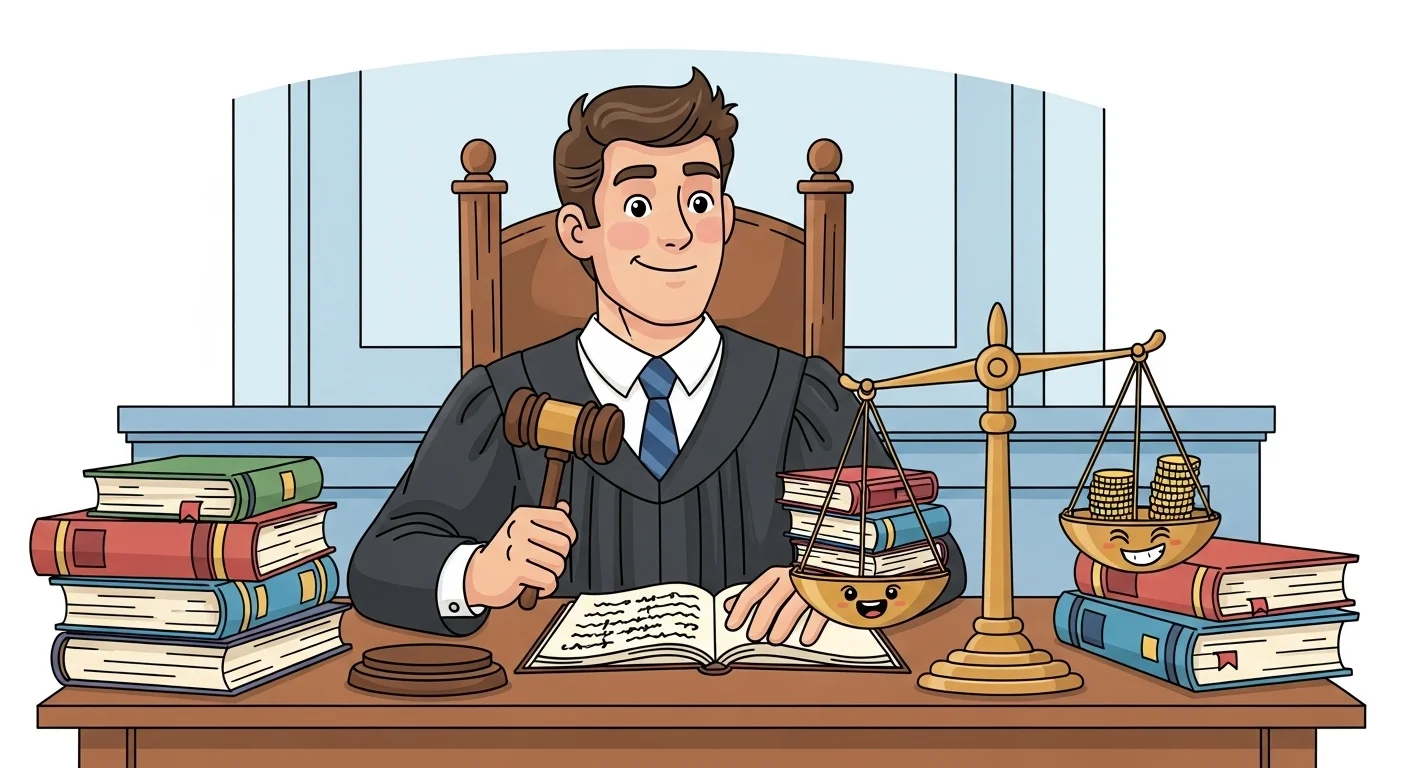
Riddle 1: I tell you what you must or must not do, printed in black and white — yet I can’t be hugged.
Hint: You consult me before you act.
Answer: A statute
Riddle 2: I break silence in the courtroom with a single strike and signal order.
Hint: You hear me when proceedings begin or pause.
Answer: A gavel
Riddle 3: I’m written to settle who owns what; signing me often makes promises stick.
Hint: You sign me in deals and promises.
Answer: A contract
Riddle 4: I’m read aloud to open a trial and tell what’s charged.
Hint: Prosecutors often start with me.
Answer: An indictment
Riddle 5: I’m the place a judge sits and the short name for the judge’s group.
Hint: Think “bench.”
Answer: The bench
Riddle 6: I protect your private facts and your identity in records — lawyers refer to me when privacy matters.
Hint: Opposite of public record.
Answer: Confidentiality
Riddle 7: I say what’s fair when two sides disagree; my written reasons become a guide.
Hint: Judges issue me.
Answer: Judicial opinion
Riddle 8: I’m the first hearing, quick and formal, where bail and charges are read.
Hint: Often called an “arraignment.”
Answer: Arraignment
Riddle 9: I’m a written promise to repay and can be enforced in court if you fail.
Hint: Lenders and borrowers use me.
Answer: A promissory note
Riddle 10: I’m the law that grows from judges deciding cases rather than from legislatures.
Hint: Common in English-speaking countries.
Answer: Common law
Riddle 11: I’m the rulebook a judge uses to decide which evidence is allowed.
Hint: Includes hearsay rules and relevance tests.
Answer: Rules of evidence
Riddles for Lawyers
Crafted with legal professionals in mind, these riddles dive deeper into the everyday tools, ethics, and strategies that shape a lawyer’s work. They’re witty, insightful, and a great challenge for sharp legal minds.

Riddle 12: I bill by the hour but am not a clock; clients watch me closely.
Hint: Lawyers track me for billing.
Answer: Billable hours
Riddle 13: I’m argued in briefs and on my paper I show your best legal shape.
Hint: You file me to persuade the court.
Answer: A legal brief
Riddle 14: I protect your client’s secrets and survive even beyond the office door.
Hint: Ethicists insist on me.
Answer: Attorney-client privilege
Riddle 15: I’m the tool a lawyer uses to check facts, precedents, and citations.
Hint: It’s often subscription-based and essential for legal research.
Answer: A legal research database
Riddle 16: I’m a written order from a court commanding someone to appear or produce documents.
Hint: You might serve me with a process server.
Answer: A subpoena
Riddle 17: I’m an argument that tries to block evidence before trial; I’m often filed in advance.
Hint: Think “motion.”
Answer: A motion in limine
Riddle 18: I advise clients on risk and structure transactions so trouble is less likely later.
Hint: Corporate attorneys do this routinely.
Answer: Legal counsel
Riddle 19: I’m a strategy to resolve disputes quietly—no judge, just neutral help.
Hint: It could be mediation or arbitration.
Answer: Alternative dispute resolution
Riddle 20: I’m the clause that says which court will hear disputes if things go wrong.
Hint: Often found in contracts under “jurisdiction.”
Answer: Choice of forum clause
Riddle 21: I’m the legal paper that transfers ownership from seller to buyer.
Hint: Essential in real estate closings.
Answer: A deed
Riddle 22: I keep a lawyer accountable to rules of fairness; break me and you face discipline.
Hint: Enforced by bar associations.
Answer: Professional code of conduct
Criminal Law Riddles
Step into the world of crime and punishment with riddles that echo courtroom drama and forensic logic. These puzzles test your knowledge of criminal procedure and key justice principles. For similar mystery-style thinking, you might enjoy solving murder mystery riddles too.
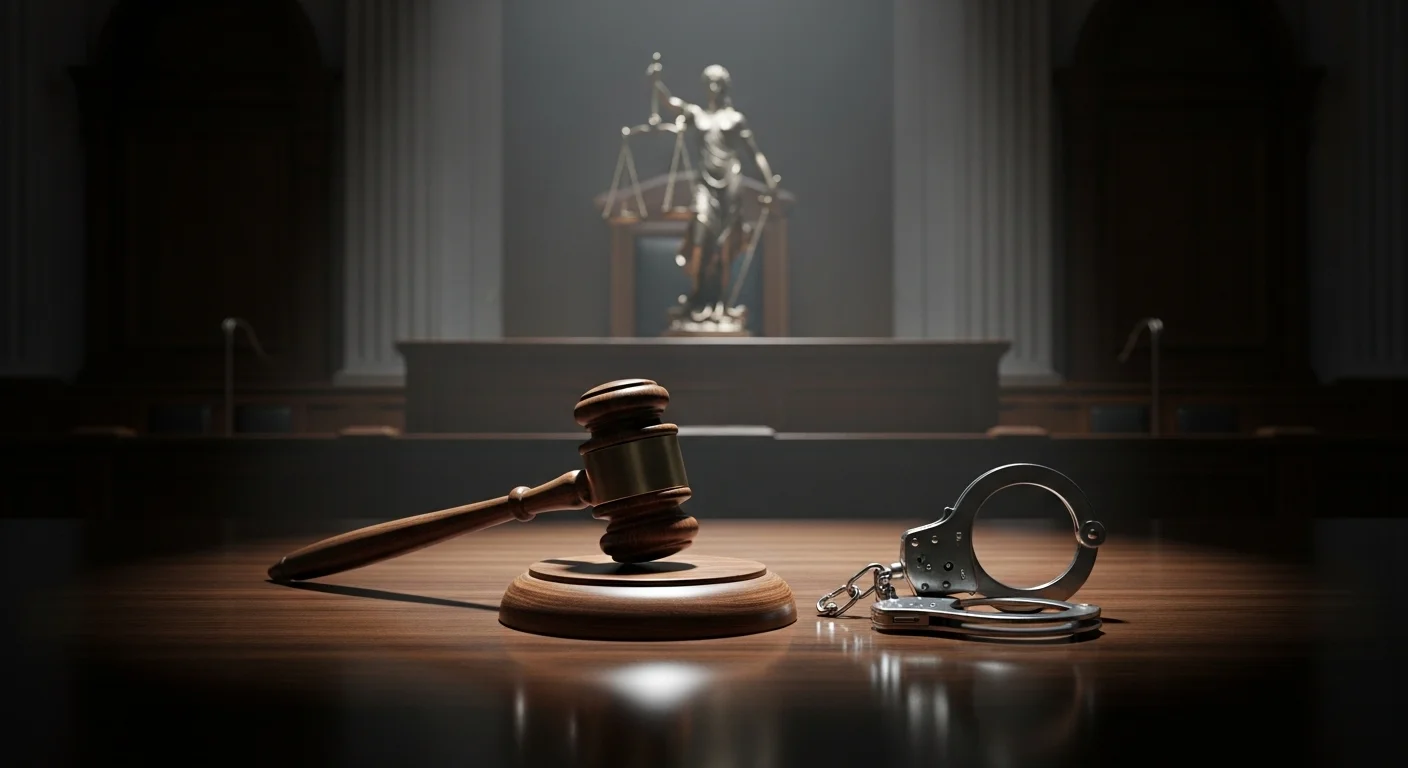
Riddle 23: I’m intent plus action; without me, there may be no crime.
Hint: Two Latin words often separate these elements.
Answer: Mens rea and actus reus
Riddle 24: I’m sworn to tell the truth and can cost you your freedom if you don’t.
Hint: Witnesses give me at trial.
Answer: An oath
Riddle 25: I vanish when reasonable doubt is present; juries seek me before convicting.
Hint: The standard for criminal conviction.
Answer: Proof beyond a reasonable doubt
Riddle 26: I’m a lesser offense that may carry a light sentence or fine.
Hint: Not a felony.
Answer: A misdemeanor
Riddle 27: I’m taken from a suspect’s body to link them to a scene — DNA, fingerprints, or prints.
Hint: Forensics collects me.
Answer: Physical evidence
Riddle 28: I’m a quick release that lets an accused await trial outside jail, often with conditions.
Hint: Money or collateral is involved.
Answer: Bail
Riddle 29: I’m the formal promise to show up in court made without paying bail.
Hint: Often used for low-risk defendants.
Answer: Release on recognizance
Riddle 30: I’m a legal agreement where a defendant pleads guilty for a reduced sentence.
Hint: Common in overloaded systems.
Answer: Plea bargain
Riddle 31: I’m the police power to search a place because a judge found probable cause.
Hint: You need this to search legally.
Answer: A search warrant
Riddle 32: I’m evidence of a suspect’s presence, like a boot print or fiber.
Hint: Often used by forensic scientists.
Answer: Trace evidence
Riddle 33: I’m the court’s command to bring a prisoner before it — often to explain why they should continue to be detained.
Hint: Two Latin words: habeas corpus.
Answer: Habeas corpus
Law School Riddles
Perfect for students and aspiring attorneys, these riddles mirror the academic grind of legal education. From casebooks to moot courts, they capture the essence of law school life. They’re not unlike the challenges in Monday riddles or even psychology riddles, which stretch reasoning skills beyond memorization.
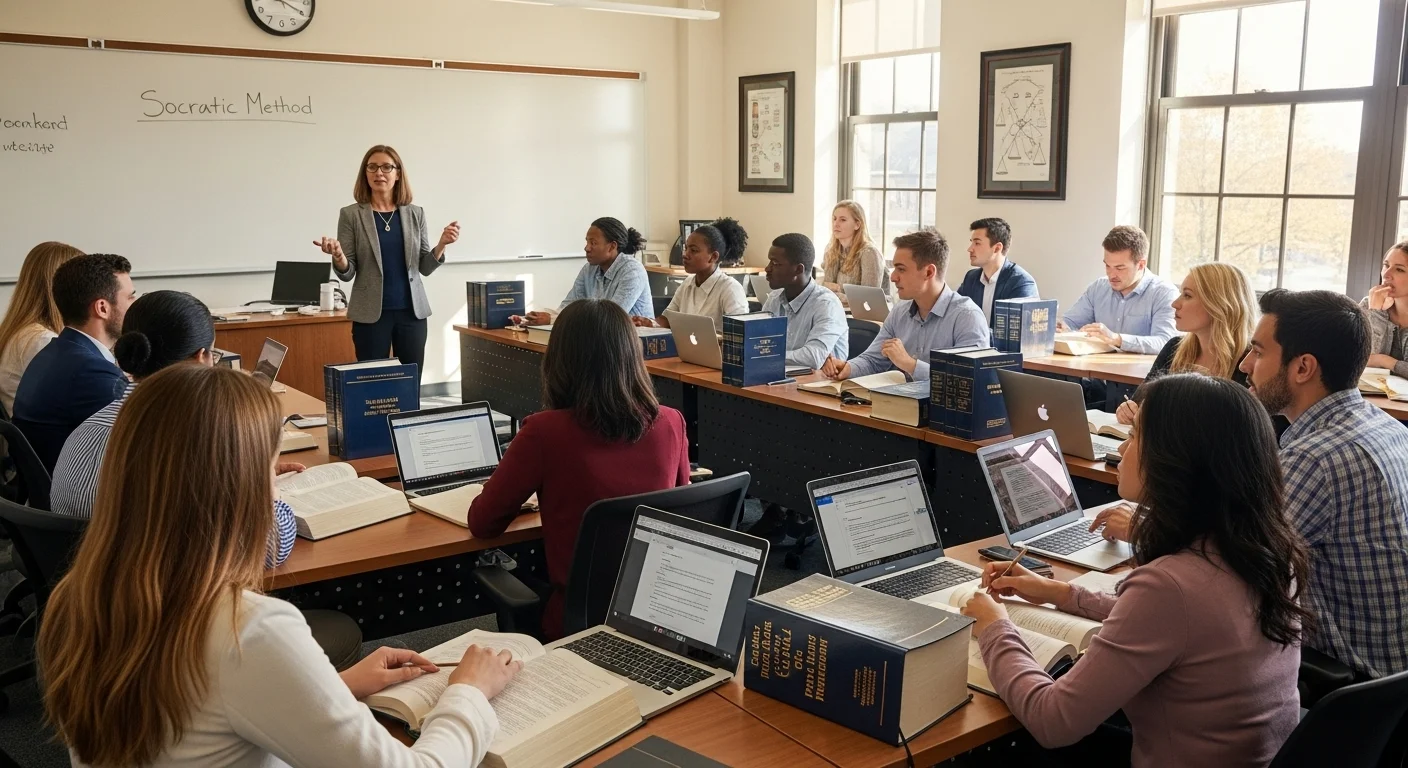
Riddle 34: I’m 3,000+ pages of case law you skim at midnight before an exam.
Hint: Students rely on me during finals.
Answer: Casebook
Riddle 35: I’m the technique of applying rules to messy facts — professors grill you on me.
Hint: IRAC helps with this.
Answer: Legal analysis
Riddle 36: I’m a single question on an exam that requires detailed argument rather than one-line answers.
Hint: Law exams love these.
Answer: Fact pattern
Riddle 37: I’m the group discussion where classmates debate tricky parts of cases.
Hint: Often mandatory attendance.
Answer: Socratic seminar
Riddle 38: I’m a short counsel assignment where you advise a hypothetical client and produce a memo.
Hint: Practiced in legal writing courses.
Answer: Legal memorandum
Riddle 39: I’m the file of cases, statutes, and notes you cram into before final—often in a binder.
Hint: Students call me “the binder” or “outline.”
Answer: Course outline
Riddle 40: I’m the method for grading many law schools where class participation matters—some love me, some dread me.
Hint: Also called “Socratic method.”
Answer: Socratic method
Riddle 41: I’m a short, timed test with multiple choice and hypotheticals at the end of a semester.
Hint: Common alongside essays.
Answer: Final exam
Riddle 42: I’m a simulated court competition where teams argue prescribed cases.
Hint: Think oral advocacy tournaments.
Answer: Moot court
Riddle 43: I’m a short course where you learn to draft contracts, wills, and briefs—practical lawyering skills.
Hint: Clinics and practical courses cover me.
Answer: Legal clinic
Riddle 44: I’m the award some top students earn, proof of high achievement on exams.
Hint: Latin: summa cum laude etc.
Answer: Academic honors
Justice & Courtroom Riddles
These riddles put you right in the middle of the courtroom. They capture the drama of trials, the authority of judges, and the delicate balance of justice in action. If you enjoy this category, check out political riddles for a civic spin on problem-solving.
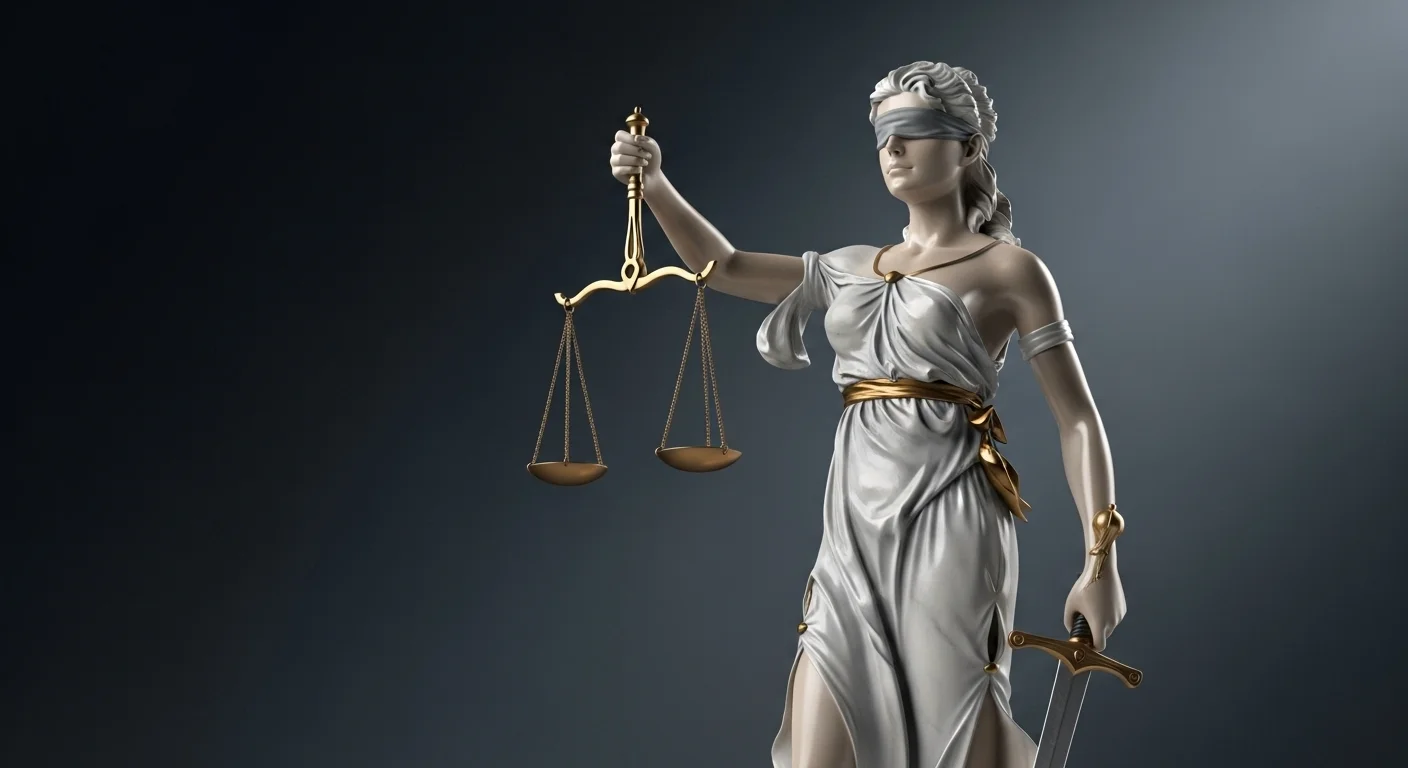
Riddle 45: I weigh arguments on either side yet carry no weight; I’m often blindfolded.
Hint: Symbol of impartiality.
Answer: Scales of justice
Riddle 46: I separate the public from the judge and hold the courtroom together.
Hint: You might sit behind me as a juror.
Answer: The bar
Riddle 47: I speak only when allowed and decide facts when the law is complex.
Hint: Juries do this.
Answer: The jury
Riddle 48: I am written by a judge to explain why one side won; lawyers study me carefully.
Hint: I create precedent when published.
Answer: Court opinion
Riddle 49: I’m the official clock of a trial—my ringing indicates time for recess.
Hint: Not an actual clock—something else marks proceedings.
Answer: Court clerk
Riddle 50: I’m the part of a trial where witnesses tell their story and lawyers ask questions.
Hint: It comes before closing arguments.
Answer: Witness examination
Riddle 51: I’m finalized when the judge signs and the clerk files; I make the judgment official.
Hint: Think “signed and entered.”
Answer: Judgment
Riddle 52: I protect jurors from outside influence; judges often warn against me.
Hint: No social media during the trial.
Answer: Jury sequestration
Riddle 53: I stop unfair lines of questioning and preserve a fair trial.
Hint: Lawyers shout for me in court.
Answer: Objection
Riddle 54: I’m the formal end of a trial where the jury states its decision.
Hint: A single word from the jury: “guilty” or “not guilty.”
Answer: Verdict
Riddle 55: I’m the judge’s final say on law and sentence after guilt is found.
Hint: It comes after conviction.
Answer: Sentencing
Contract Law Riddles
Explore the building blocks of promises, agreements, and obligations. These riddles unravel how contracts are formed, enforced, and sometimes broken.

Riddle 56: I’m formed when offer meets acceptance and consideration changes hands.
Hint: The classic contract elements.
Answer: Binding contract
Riddle 57: I let a party escape a deal because of a material mistake — courts may allow me rarely.
Hint: Start with “mutual” or “unilateral.”
Answer: Rescission
Riddle 58: I prevent one party from denying what they agreed when it would be unfair.
Hint: Related to promises and reliance.
Answer: Promissory estoppel
Riddle 59: I’m a contract clause that says a party must try to settle matters before suing.
Hint: Often called “dispute resolution” or “good faith” clause.
Answer: Alternative dispute resolution clause
Riddle 60: I make a contract void if a signature was obtained by trick or pressure.
Hint: I describe wrongful persuasion.
Answer: Duress
Riddle 61: I’m the part of a contract that’s broken and leads to a remedy.
Hint: A promise that was not kept.
Answer: Breach
Riddle 62: I’m the legal remedy that puts the injured party in the position they would’ve been in had the contract been performed.
Hint: Common remedy: monetary compensation.
Answer: Expectation damages
Riddle 63: I’m a promise in a contract that’s so important the court will enforce it even if there’s no signed writing in some cases.
Hint: Consider the statute of frauds exceptions.
Answer: Oral contract
Riddle 64: I’m a clause that limits how much one can recover after a breach.
Hint: Sometimes capped or liquidated.
Answer: Limitation of liability clause
Riddle 65: I’m the rule that requires agreements transferring land to be in writing.
Hint: Statute that governs enforceability.
Answer: Statute of frauds
Riddle 66: I’m a condition that must happen before a party’s duty to perform arises.
Hint: “If and when” often starts such clauses.
Answer: Condition precedent
Evidence & Procedure Riddles
These puzzles highlight the rules that keep trials fair and precise. They explore how evidence is admitted, challenged, or excluded in the pursuit of justice.
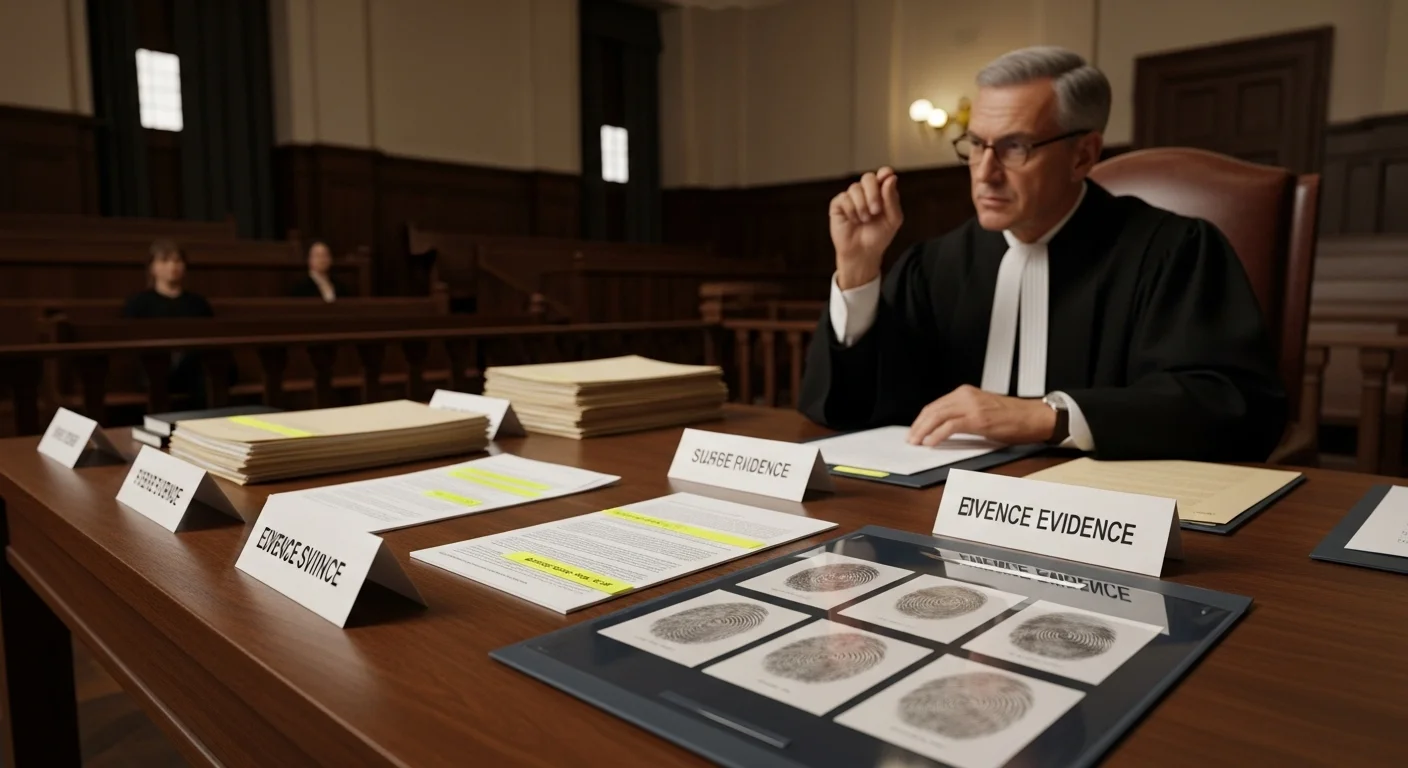
Riddle 67: I forbid secondhand statements unless an exception applies.
Hint: Think of repeating someone else’s words.
Answer: Hearsay rule
Riddle 68: I require that evidence must actually help prove something relevant to the case.
Hint: Not all facts are admissible — only those that matter.
Answer: Relevance
Riddle 69: I’m the legal test for stopping police from searching without permission.
Hint: Requires a reasonable belief based on facts.
Answer: Probable cause
Riddle 70: I’m the paper that formally starts a civil lawsuit and tells the defendant what’s alleged.
Hint: Also called the “complaint.”
Answer: Complaint
Riddle 71: I protect someone from being tried twice for the same offense.
Hint: Fifth Amendment in the U.S. context.
Answer: Double jeopardy
Riddle 72: I force a witness to bring a document or appear in court to testify.
Hint: Lawyers subpoena me.
Answer: Subpoena
Riddle 73: I’m the short hearing where parties ask the judge to rule on law before trial.
Hint: Motions to dismiss or for summary judgment occur here.
Answer: Pretrial motions hearing
Riddle 74: I’m the protection offered when a party cannot afford counsel in a criminal matter (in the U.S.).
Hint: You get appointed help.
Answer: Right to counsel
Riddle 75: I’m the procedural step where the judge examines if the prosecution presented enough evidence to go to the jury.
Hint: Called a motion for judgment of acquittal or directed verdict.
Answer: Motion for directed verdict
Riddle 76: I’m the form where jurors state they can be fair and impartial.
Hint: Used during jury selection.
Answer: Voir dire
Riddle 77: I’m the rule that evidence obtained unconstitutionally is often excluded from trial.
Hint: “Fruit of the poisonous tree.”
Answer: Exclusionary rule
Family Law Riddles
Centered on relationships, children, and household matters, these riddles bring a personal touch to legal problem-solving. They show how the law steps in to protect families.
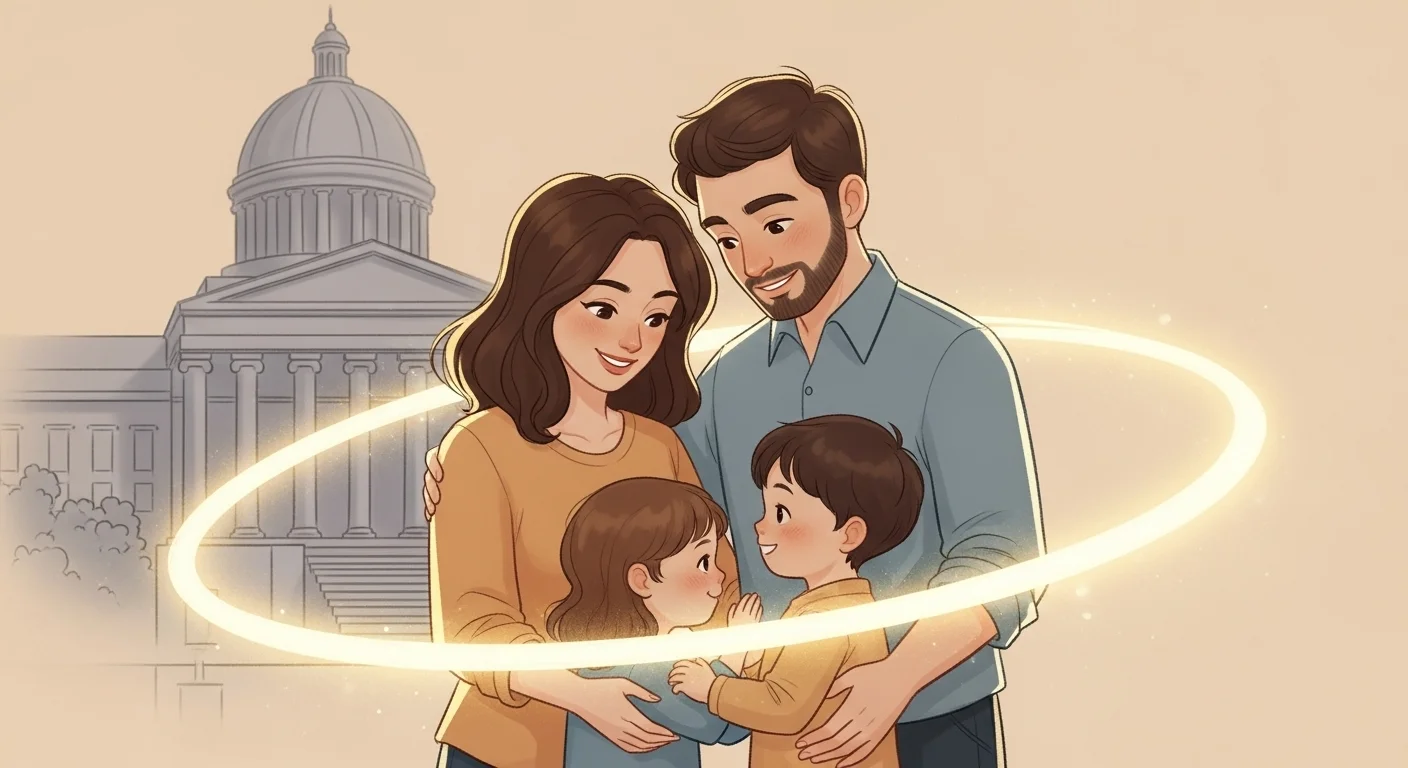
Riddle 78: I dissolve the legal bonds of marriage and divide assets when two people part ways.
Hint: Courts issue me when spouses can’t reconcile.
Answer: Divorce
Riddle 79: I determine who cares for a child and where they live after parents separate.
Hint: Courts award custody or guardianship.
Answer: Child custody order
Riddle 80: I’m the monthly support one parent pays to the other for a child’s needs.
Hint: Calculated based on income and needs.
Answer: Child support
Riddle 81: I’m signed before marriage to decide finances and property if the relationship ends.
Hint: Often called a prenup.
Answer: Prenuptial agreement
Riddle 82: I’m the legal process to adopt and make a child a legal family member.
Hint: Offers parental rights and obligations.
Answer: Adoption
Riddle 83: I protect a spouse from an abusive partner by ordering separation and behavior limits.
Hint: It’s an emergency court order.
Answer: Protective order
Riddle 84: I’m the fair division of marital property in some states that splits everything equally.
Hint: Not equitable (which means fair, not always equal).
Answer: Community property
Riddle 85: I’m the legal term for the financial support a former spouse may receive after separation.
Hint: It can be temporary or permanent.
Answer: Alimony
Riddle 86: I’m the guardian appointed for a minor’s estate or person when parents cannot act.
Hint: Courts appoint someone trustworthy.
Answer: Guardian
Riddle 87: I’m the court’s instruction that a parent must provide for a child’s medical and educational needs.
Hint: Often part of custody or support orders.
Answer: Child support terms
Riddle 88: I’m the process to change a child’s legal name after adoption or otherwise.
Hint: Requires a petition and court approval.
Answer: Name change petition
Property Law Riddles
From leases to ownership disputes, these riddles explore the rights and rules around land and property. They’re a fun way to test your knowledge of real estate and property law.
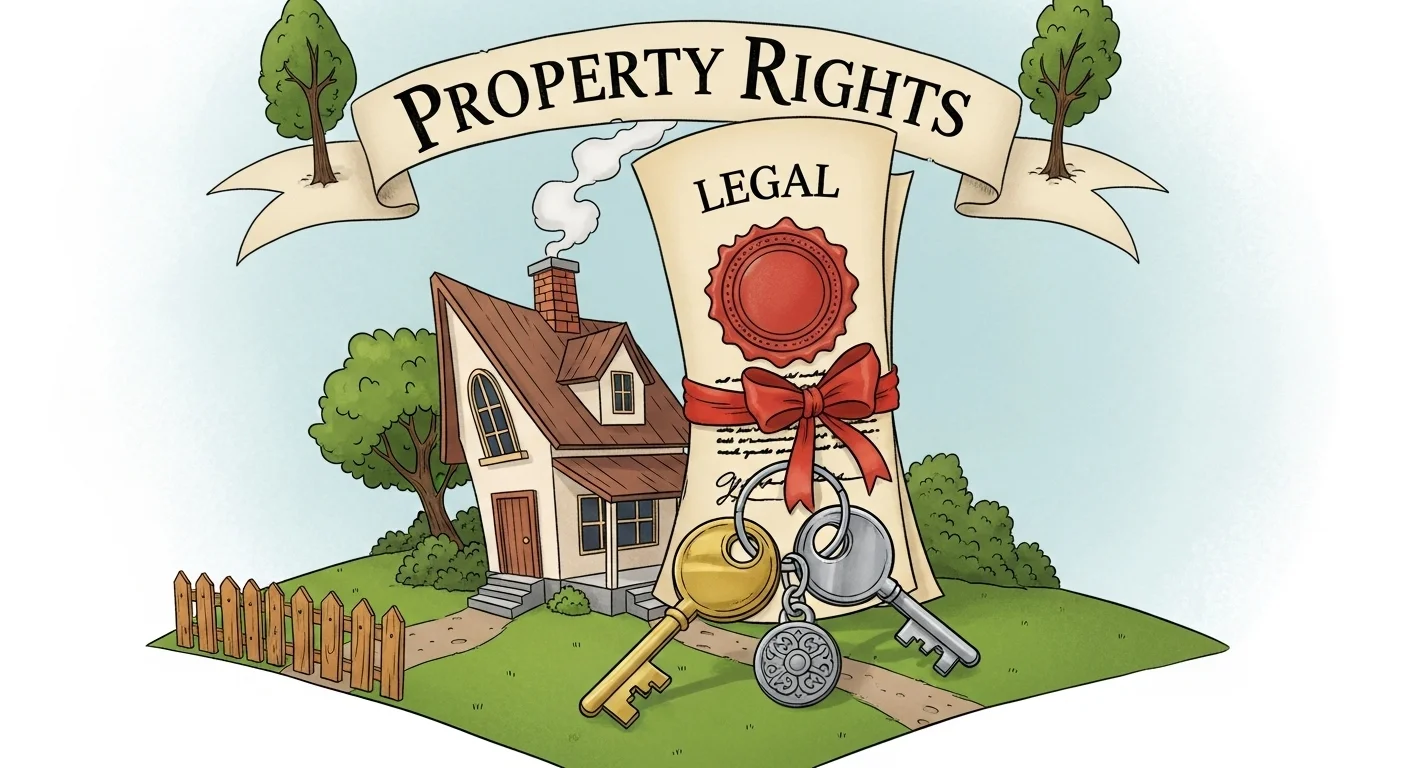
Riddle 89: I’m the exclusive right to use land for a period granted by lease.
Hint: You sign me to rent a house.
Answer: Leasehold interest
Riddle 90: I’m the legal proof that shows who owns land and how it’s titled.
Hint: You record me at the registry.
Answer: Title
Riddle 91: I’m the right to cross another’s land for access — often ancient routes.
Hint: “Right of way” is my common name.
Answer: Easement
Riddle 92: I’m the automatic transfer of property to another when certain conditions are met, like death.
Hint: Could be through a will or operation of law.
Answer: Inheritance
Riddle 93: I’m the process that forces sale of property to pay a debt.
Hint: Lenders use me after payment defaults.
Answer: Foreclosure
Riddle 94: I’m when two or more people own the same land with equal rights and survivorship in some cases.
Hint: Joint tenants or tenants in common.
Answer: Co-ownership
Riddle 95: I’m the legal doctrine that protects good-faith purchasers for value when title defects exist.
Hint: Often invoked in property disputes and recording acts.
Answer: Bona fide purchaser doctrine
Riddle 96: I’m a short lease for a single event or season.
Hint: You might rent a field for a weekend festival.
Answer: Short-term lease
Riddle 97: I’m the rule limiting how landowners may use their land to prevent harm to neighbors.
Hint: Zoning and nuisance laws relate to me.
Answer: Zoning regulation
Riddle 98: I’m the legal right to possess and dispose of property, the “bundle” that owners hold.
Hint: Think “bundle of rights.”
Answer: Property rights
Riddle 99: I’m the payment a tenant gives to a landlord for occupancy.
Hint: Regularly due, monthly in many leases.
Answer: Rent
Intellectual Property (IP) Riddles
These riddles shine a light on creativity and innovation. They explore copyrights, patents, and trademarks—the laws that protect ideas, inventions, and original works.
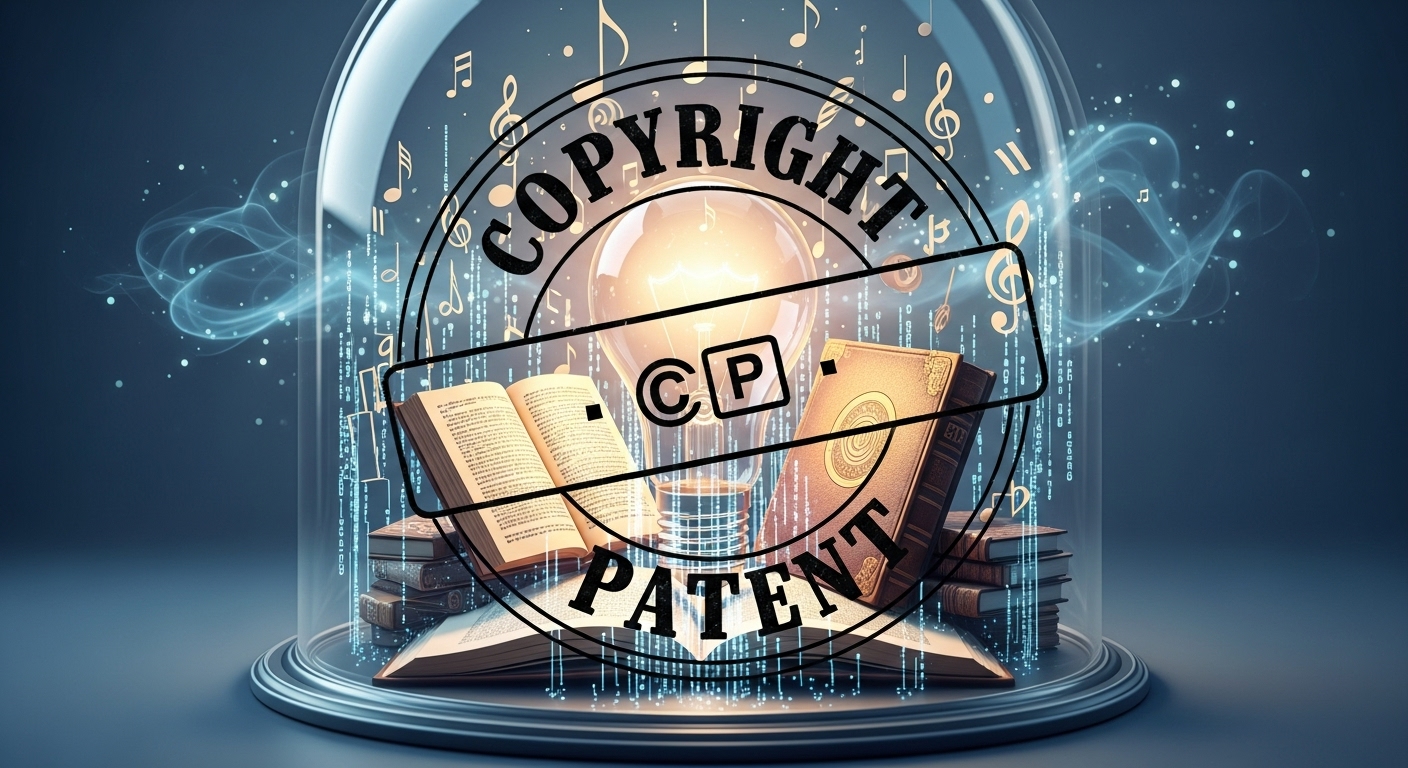
Riddle 100: I protect creative works like books, songs, and software code for a set time.
Hint: You register me with the copyright office.
Answer: Copyright
Riddle 101: I’m a short phrase, logo, or name that identifies goods and stops confusion in the marketplace.
Hint: Coca-Cola, Nike swoosh are examples.
Answer: Trademark
Riddle 102: I protect new inventions when they’re novel and non-obvious.
Hint: Inventors apply for me.
Answer: Patent
Riddle 103: I’m the right to exclude others from using a brand identifier for similar goods or services.
Hint: Enforced by trademark law.
Answer: Trademark protection
Riddle 104: I’m the legal tool creators use to show they invented something first, preventing copying.
Hint: Not copyright—often used in tech.
Answer: Patent application
Riddle 105: I’m the unfair copying of a competitor’s product look that confuses buyers.
Hint: Often a trade dress issue.
Answer: Trade dress infringement
Riddle 106: I’m the confidential knowledge a company keeps secret for competitive edge.
Hint: Recipes like Coca-Cola rely on me.
Answer: Trade secret
Riddle 107: I protect the look and design of a useful article when registered.
Hint: Industrial designers use me.
Answer: Design patent
Riddle 108: I let creators authorize others to use their work for payment or under conditions.
Hint: You sign me to let someone republish your poem.
Answer: License
Riddle 109: I’m the act of using someone’s creative work without permission when permission is required.
Hint: You risk infringement claims for me.
Answer: Copyright infringement
Riddle 110: I’m the grace period or term that decides when IP protection ends and others may use the work freely.
Hint: Public domain results when I expire.
Answer: Term of protection
Legal Ethics & Professional Responsibility Riddles
Law isn’t just about winning—it’s about integrity. These riddles emphasize the ethical duties lawyers must uphold, from loyalty to honesty in court.
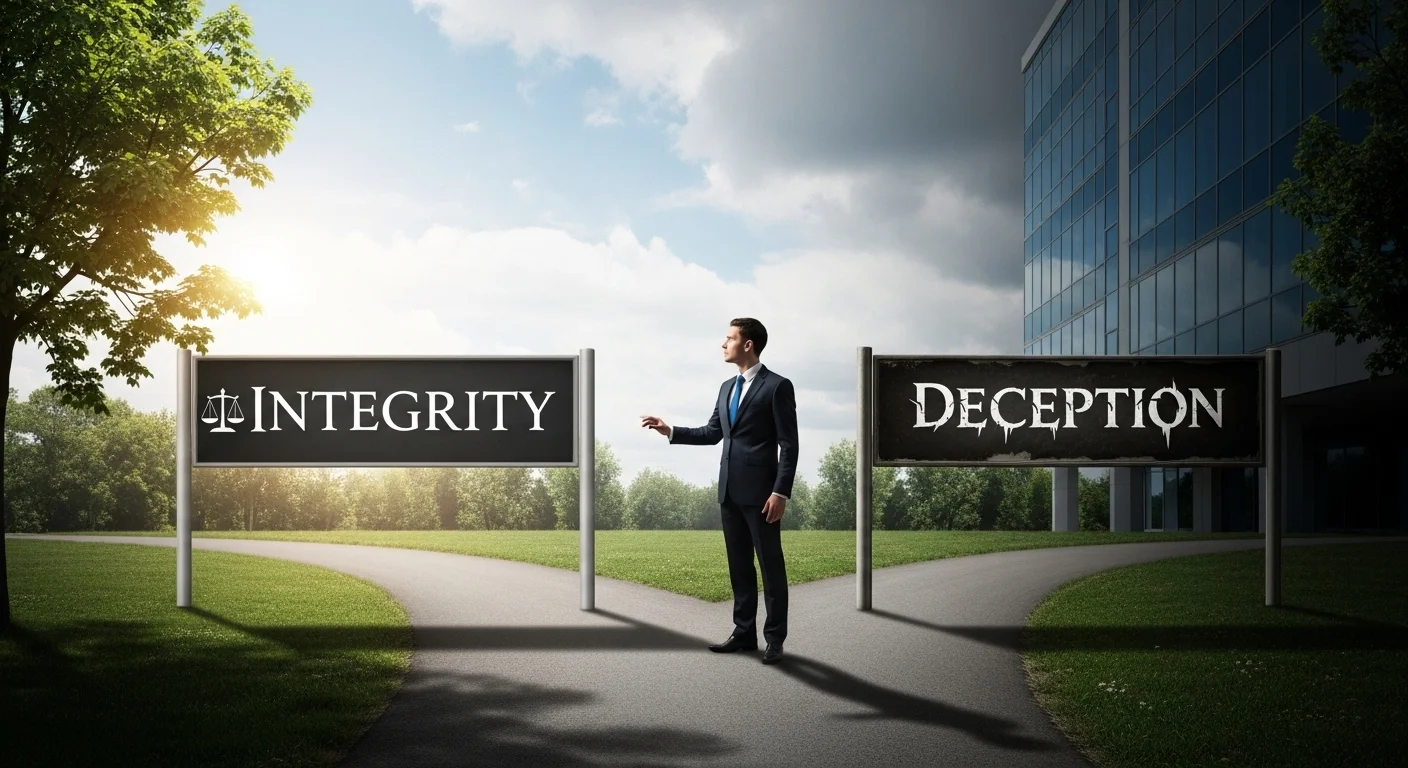
Riddle 111: I forbid a lawyer from representing clients whose interests clash with a current client.
Hint: Conflict of interest covers this.
Answer: Conflict of interest
Riddle 112: I require lawyers to put a client’s interests above their own when representing them.
Hint: An ethical cornerstone.
Answer: Duty of loyalty
Riddle 113: I demand lawyers maintain competence in the law and don’t take matters they can’t handle.
Hint: Continuing legal education helps with this.
Answer: Duty of competence
Riddle 114: I ensure clients know if a lawyer receives money for referring them to a service.
Hint: Disclosure and consent may be required.
Answer: Referral disclosure rules
Riddle 115: I’m the rule that forbids making false statements to the court.
Hint: Candor to the tribunal.
Answer: Duty of candor
Riddle 116: I protect client secrets even after representation ends.
Hint: Confidentiality survives the relationship.
Answer: Lawyer-client confidentiality
Riddle 117: I’m the ethical duty to avoid bringing frivolous claims just to harass someone.
Hint: Courts sanction this to prevent abuse.
Answer: Prohibition on frivolous litigation
Riddle 118: I prevent lawyers from advertising in deceptive ways.
Hint: Rules regulate legal marketing.
Answer: Advertising and solicitation rules
Riddle 119: I require lawyers to communicate promptly about case developments and fees.
Hint: Clients must be kept informed.
Answer: Duty to communicate
Riddle 120: I’m what the bar may impose for serious ethical breaches—loss of license, for example.
Hint: Disciplinary consequences.
Answer: Disbarment
Riddle 121: I’m the guiding principle that says lawyers should act with honesty, fairness, and respect.
Hint: The profession’s core ideal.
Answer: Professionalism
Forensic & Crime Scene Riddles
Get a glimpse of the science behind justice. These riddles explore forensic tools, crime scene analysis, and the hidden clues that solve cases.
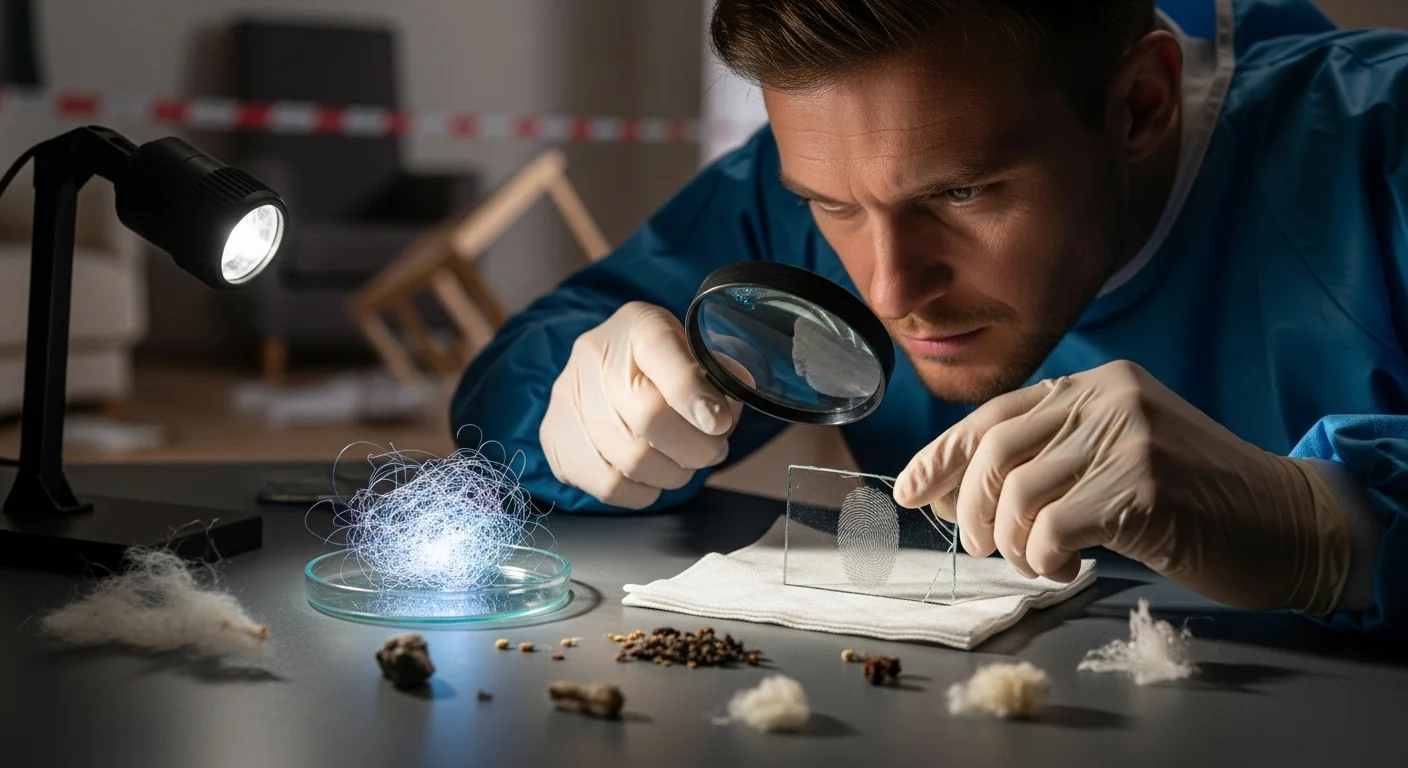
Riddle 122: I’m the silent witness left in patterns—blood, fiber, or shoe marks.
Hint: Forensic scientists analyze me to reconstruct events.
Answer: Physical pattern evidence
Riddle 123: I save the day by matching unknown DNA to a reference sample.
Hint: Genetic material used to identify suspects.
Answer: DNA evidence
Riddle 124: I reveal when a body was moved or where the struggle occurred through tiny particles.
Hint: Microscopic traces are key.
Answer: Trace evidence
Riddle 125: I’m the process of photographing, measuring, and mapping a scene so it can be studied later.
Hint: Forensics must document everything.
Answer: Crime scene documentation
Riddle 126: I’m the breath test that estimates how much alcohol is in someone’s bloodstream.
Hint: Used at traffic stops.
Answer: Breathalyzer test
Riddle 127: I’m the expert who interprets wounds, time of death, and cause of death.
Hint: Medical examiner or coroner fills this role.
Answer: Forensic pathologist
Riddle 128: I can reveal who handled an object by invisible oil patterns or smudges.
Hint: Powder and reagents highlight me.
Answer: Latent fingerprints
Riddle 129: I compare bullets, cartridges, and rifling patterns to link guns to scenes.
Hint: Ballistics experts work with me.
Answer: Ballistic analysis
Riddle 130: I determine if a document is a forgery by ink, handwriting, or paper age.
Hint: Used in fraud investigations.
Answer: Forensic document examination
Riddle 131: I’m the tiny, almost invisible evidence that can tie people to places—soil, pollen, or paint.
Hint: Environmental clues.
Answer: Trace environmental evidence
Riddle 132: I’m the lab test that detects controlled substances in blood or urine.
Hint: Toxicology uses me.
Answer: Toxicology report
My Experience Using Law Riddles in Class
Back when I tutored first-year law students, I created a weekly “legal puzzle challenge.” Each Friday, students had to solve a short riddle related to our topic—be it contracts, constitutional law, or criminal procedure. Within a month, attendance improved, students engaged more deeply, and several told me it was the highlight of their week.
That engagement reminded me of how cross-domain riddles—like accounting riddles or programmer riddles—also sharpen reasoning in other professions.
One student said, “That one riddle about broken contracts stuck with me more than any lecture slide.” That’s when I realized riddles weren’t just games—they were powerful teaching tools.
Best Law Riddles for Different Needs
Best law riddles for beginners: Easy logic-based ones, like the gravity riddle.
Top law riddles for law students: Case-based puzzles that tie into real-world principles.
Best legal riddles for kids: Simple “scales of justice” or courtroom-themed fun riddles.
Challenging law riddles for lawyers: Trickier ones that require lateral reasoning or knowledge of legal jargon.
Conclusion: Your Next Legal Puzzle Awaits
Law is all serious business, but riddles tell us that learning may be, after all, fun. Be it in the classroom or in a legal courtroom icebreaker or even during a coffee break with your friends, these puzzles help hone your intellect and retain legal concepts more easily.
In this case, my challenge is this: Select one law riddle on this list and present it at your next meeting or class. You will be shocked at the speed at which it elicits curiosity- and perhaps some laughs.
Frequently Asked Questions (FAQs)
What is the hardest law?
Many argue it’s constitutional law, given its complexity and far-reaching impact.
Who are the Magic Circle law firms?
Clifford Chance, Freshfields, Allen & Overy, Linklaters, and Slaughter and May.
What’s the best question to ask a lawyer?
One that is precise, fact-based, and legally relevant—broad questions waste time and money.
What are the three sphinx riddles?
They aren’t strictly legal but stem from Greek mythology—one involves “man who walks on four legs in the morning, two in the afternoon, and three in the evening.”
What can be caught and heard but never seen?
A legal argument (or metaphorically, a voice).
Are law riddles useful in education?
Yes—professors often use them to engage students, simplify abstract concepts, and test reasoning skills.
